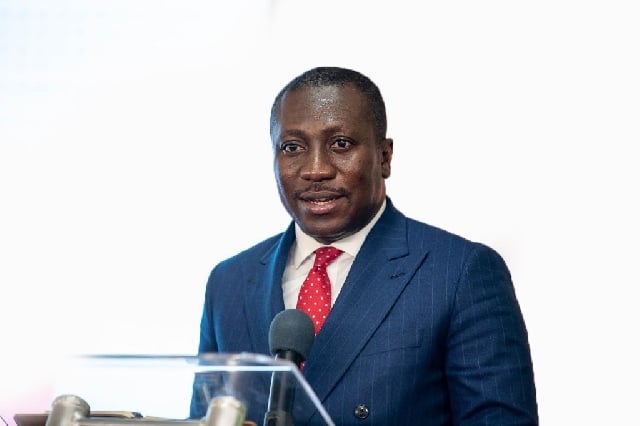The concluding session of Ghana’s 8th Parliament witnessed a remarkable display of bipartisan camaraderie as the Majority Leader, Alexander Kwamena Afenyo-Markin, lauded the leadership qualities of his counterpart, Minority Leader Dr. Cassiel Ato Forson. Afenyo-Markin’s address transcended the often-contentious political divide, painting a portrait of a respected adversary whose unwavering commitment to his caucus and principles shaped the dynamics of the House. He acknowledged the inherent challenges of navigating the complexities of parliamentary politics, particularly when dealing with a formidable opposition, yet emphasized the crucial role such opposition plays in a healthy democracy.
Afenyo-Markin’s praise for Dr. Forson was not a mere formality; it was punctuated with anecdotes that showcased the Minority Leader’s firmness and resolve. He recounted instances where seemingly amicable discussions would be followed by early morning calls from Dr. Forson, firmly stating the opposition’s unwavering stance on particular issues. This underscored the Minority Leader’s dedication to representing the interests of his party and constituents, even when faced with pressure to compromise. The Majority Leader acknowledged the difficulty of negotiating with such a resolute opposition, describing them as “tough, stubborn, and difficult.” This candid assessment highlighted the inherent tension between the two sides, a tension that, while challenging, is fundamental to the checks and balances inherent in a functioning parliamentary system.
The Majority Leader’s address painted a vivid picture of the dynamics within the 8th Parliament, revealing the intricate dance between cooperation and contention. He acknowledged the Minority’s unwavering commitment to holding the government accountable, a role they played with tenacity and, at times, with what Afenyo-Markin described as a “sneering at power.” This description, while potentially controversial, revealed a deeper understanding of the opposition’s mindset – a vigilance born from their position outside the corridors of power. This constant scrutiny, though challenging for the ruling party, is crucial for ensuring transparency and accountability in governance.
Afenyo-Markin’s tribute extended beyond Dr. Forson’s individual leadership to encompass the entire Minority caucus. He recognized their resilience and unity, qualities which, despite creating obstacles for the Majority, ultimately contributed to robust debate and more considered legislation. His words painted a picture of a parliamentary environment where rigorous debate and dissenting voices were not merely tolerated but valued as essential components of the democratic process. This acknowledgment underscored the crucial role of a strong opposition in shaping policy and ensuring that diverse perspectives are considered.
The public acknowledgment of mutual respect between the leaders of opposing factions signifies a mature understanding of the roles they play in the broader political landscape. While their political ideologies and strategies may differ, the underlying respect for the democratic process and each other’s commitment to their respective constituencies fosters a healthier environment for collaboration and compromise. This recognition of shared purpose, despite differing approaches, is crucial for the effective functioning of Parliament and the overall stability of the nation’s democratic institutions.
The reflections shared by Afenyo-Markin provide valuable insight into the dynamics of Ghana’s parliamentary democracy. They highlight the delicate balance between robust opposition and collaborative governance, demonstrating how a strong and determined opposition can contribute to a more accountable and effective government. The mutual respect displayed between the leaders, despite their political differences, underscores the maturity of Ghana’s democratic system and the understanding that a healthy democracy thrives on the presence of diverse voices and rigorous debate. This recognition of the vital role of the opposition sets a positive precedent for future parliaments and strengthens the foundations of Ghana’s democratic governance.














